Connecting the struggles from East to West
11th of January 2024 / Paola Matova, Food & Water Action Europe
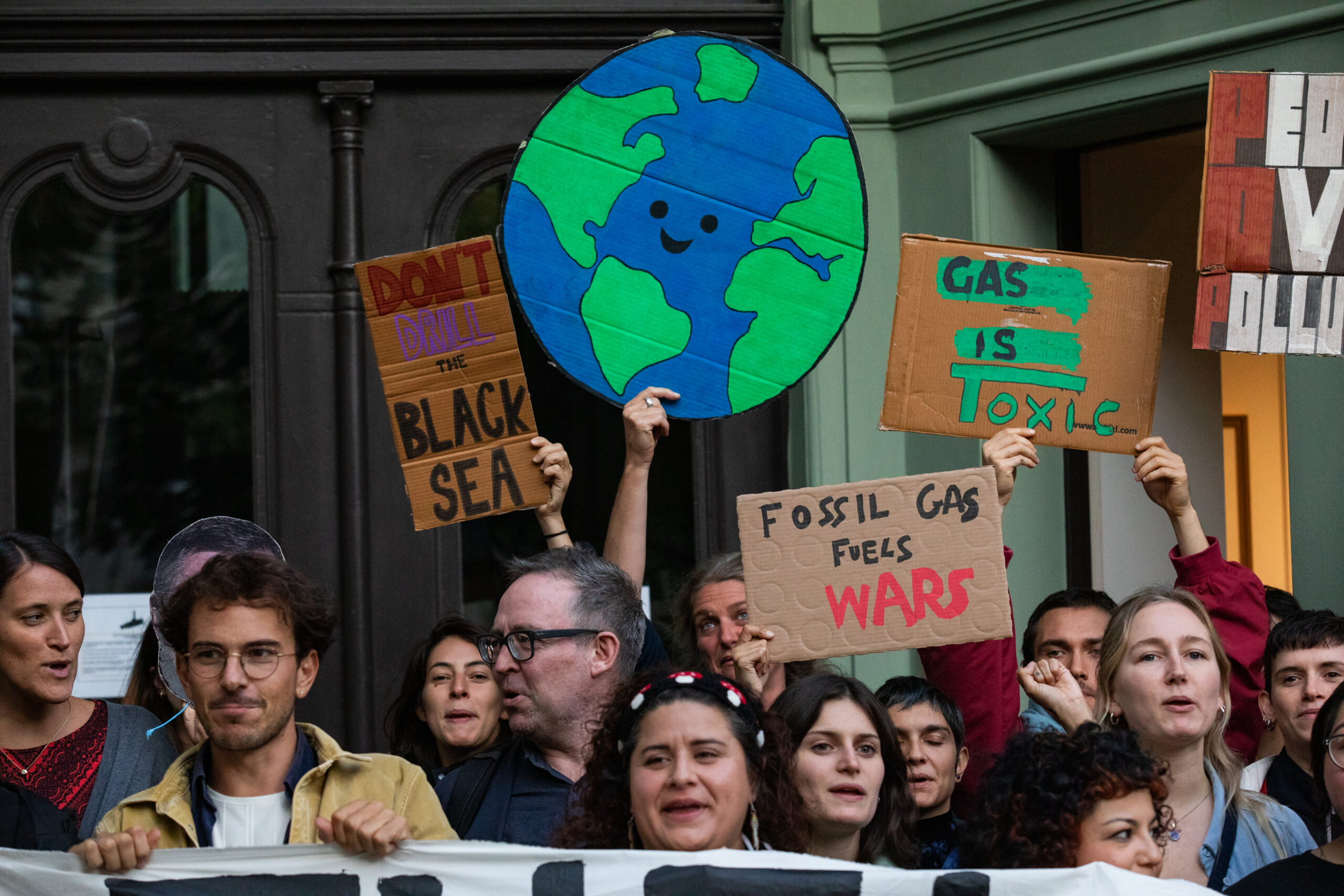 Who, what & why?
Who, what & why?
The urgency to foster connections among gas fighters was the main objective of the conference, aligning with the broader goal of ensuring both social equity and climate justice. Through the three days, participants actively engaged in an exchange of knowledge and information, creating crucial connections to collectively counter the persistent push for fossil gas. The conference served as a platform for taking stock of the progress made by the BGN, strategizing around next steps, and delving into the multifaceted regional perspectives and dynamics inherent in the fight against fossil fuels.
The BGC 2023 not only tackled current issues but also opened dialogues on future obstacles. Participants raised their concerns regarding potential investments in new fossil projects, the credibility of questionable solutions such as hydrogen and carbon capture and storage (CCS), the political trajectory of the European Union in the pre-election period, and more extensive global societal challenges. Essentially, the dynamics discussed at the conference reflected a worldwide movement dedicated to dismantling the prevailing fossil fuel paradigm within the context of a capitalist economic system that sustains substantial inequalities.
Context
In response to Russia’s invasion of Ukraine, the European Union (EU) has shown support for various fossil gas projects through the REPowerEU Plan. Despite having sufficient fossil gas import capacity, the EU is rushing to build additional Liquefied ‘Natural’ Gas (LNG) terminals and pipelines as part of a strategy to reduce reliance on Russian gas. The plan proposes utilizing the European public budget.
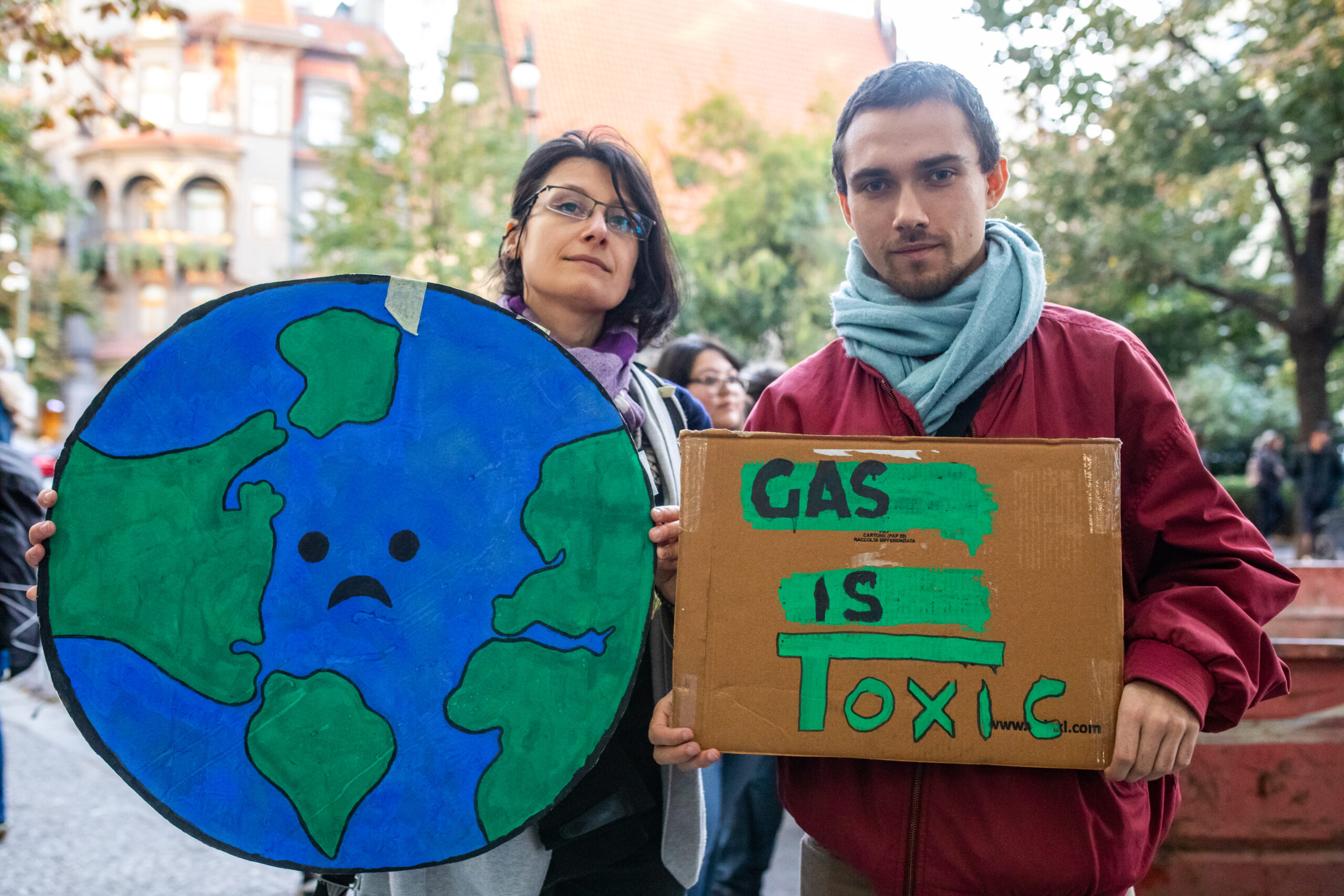 The EU’s focus on increasing LNG imports aims to replace a significant portion of the EU’s gas imports that were previously sourced from Russia – a whopping 155 billion cubic meters of Russian fossil gas. This rush raises concerns about prioritizing fossil gas and hydrogen over renewable solutions and direct electrification, hindering efforts to address the ongoing climate crisis.
The EU’s focus on increasing LNG imports aims to replace a significant portion of the EU’s gas imports that were previously sourced from Russia – a whopping 155 billion cubic meters of Russian fossil gas. This rush raises concerns about prioritizing fossil gas and hydrogen over renewable solutions and direct electrification, hindering efforts to address the ongoing climate crisis.
Simultaneously, fossil gas is a contentious issue and triggers deep-seated conflicts in other regions too, independent of the war in Ukraine. Israel has been promoted as a strategic partner in the context of European energy security, particularly within the framework of the RePowerEU initiative. Through a trilateral agreement involving the EU, Egypt, and Israel, the plan envisions Israel selling fossil gas – extracted from Occupied Palestinian Territories (OPT) – from its Leviathan and Tamar fields to the EU. This partnership has led to the construction of additional pipelines and the exploration of new offshore fossil gas concessions.
The EU is highly dependent on fossil energy imports, especially as a primary destination for LNG exports. Consequently, Europe bears direct accountability for the adverse effects on indigenous/local communities, ecosystems, and the socio-political effects resulting from the expansion of fossil gas extraction.
Connecting the fights: International and regional
BGC 2023 started with a spectrum line session – as we could not start talking about fossil gas without being on the same page and considering the different experiences, realities, perspectives, understandings, privileges and starting points of each and everyone in the room.
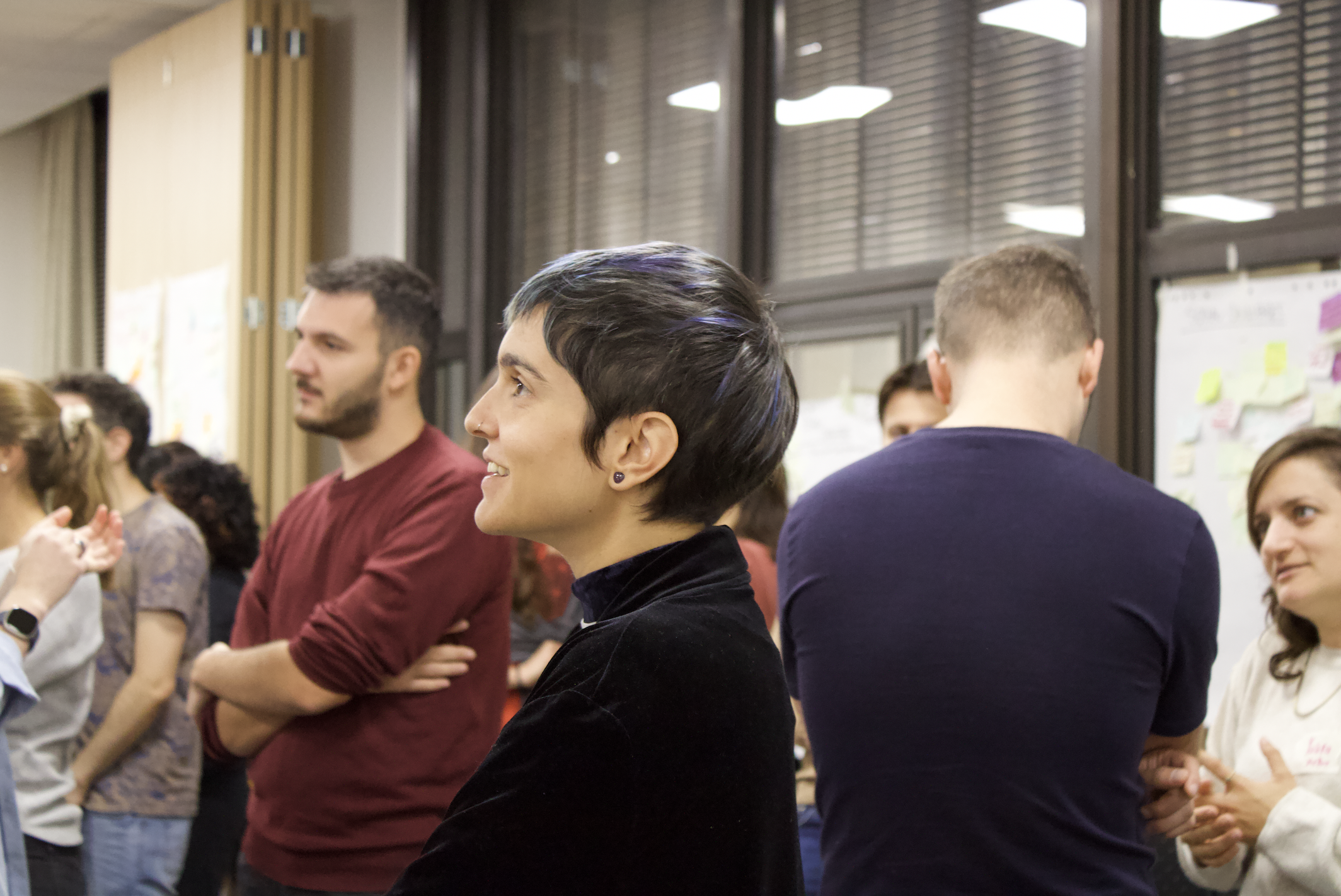 The Spectrum Lines revealed diverse perspectives within the group, with people from Germany expressing resonance with the EU narrative, people from Greece feeling closer to the Balkans and the Middle East region, and varying opinions on issues like discussing fossil gas without militarization. Additionally, it highlighted disparities in the connectivity of local movements, with some regions having strong connections and others – mainly Eastern European countries like Estonia/Latvia and Croatia – acknowledging the limited size of the climate movement in this particular region.
The Spectrum Lines revealed diverse perspectives within the group, with people from Germany expressing resonance with the EU narrative, people from Greece feeling closer to the Balkans and the Middle East region, and varying opinions on issues like discussing fossil gas without militarization. Additionally, it highlighted disparities in the connectivity of local movements, with some regions having strong connections and others – mainly Eastern European countries like Estonia/Latvia and Croatia – acknowledging the limited size of the climate movement in this particular region.
Over the course of the next two days, local activists, researchers, and campaigners provided comprehensive updates and valuable insights from their respective campaigns. This allowed for a deep exploration of the implications for communities and the ongoing struggles faced by those at the forefront of the battle against major fossil fuel corporations. The discussions delved into the nuanced challenges, highlighting the direct impact on communities and the collective efforts required to confront and address the issues provoked by the fossil gas expansion. Most prominently, this was done in a panel discussion featuring delegation of women from the U.S. Gulf Coast alongside testimonies from Croatia and the Middle East.
Elida Castillo, representing Chispa Texas, shed light on the environmental injustices faced by marginalized communities, particularly Black and Hispanic populations, emphasizing the accountability of the fossil fuel industry, banks, and decision-makers. She told us how Chispa’s advocacy empowers communities through informed action, translating the impact of incidents for residents, and challenging the industry.
Elida reported how the Gulf Coast communities face imminent threat due to big expansion plans for fracked fossil gas infrastructure. One of the epicenters of this LNG expansion is her own town of Gregory, Texas, home to Corpus Christi LNG facility. Despite its small size, Gregory has borne the brunt of this dirty industry, including health impacts, contamination of food, air and water and safety threats.
In Corpus Christi, studies reveal alarming levels of pollutants, with residents facing significantly shorter life expectancies due to the cumulative impact of pollution.
Chloe Torres, representing the Texas Campaign for the Environment, presented the impactful “Clean Slate” campaign, which confronts the profound health ramifications caused by the industry and exposes the redirection of public resources to wealthy corporations.

Jenny Espino, also part of the Texas Campaign for the Environment, illuminated the intricate interplay of issues. She detailed the blatant environmental racism through deliberate infrastructural segregation and highlighted the stark health impacts visible in affected communities. She calls for comprehensive systemic change, challenging the status quo of both political parties and emphasized the inseparable links between environmental and social challenges.
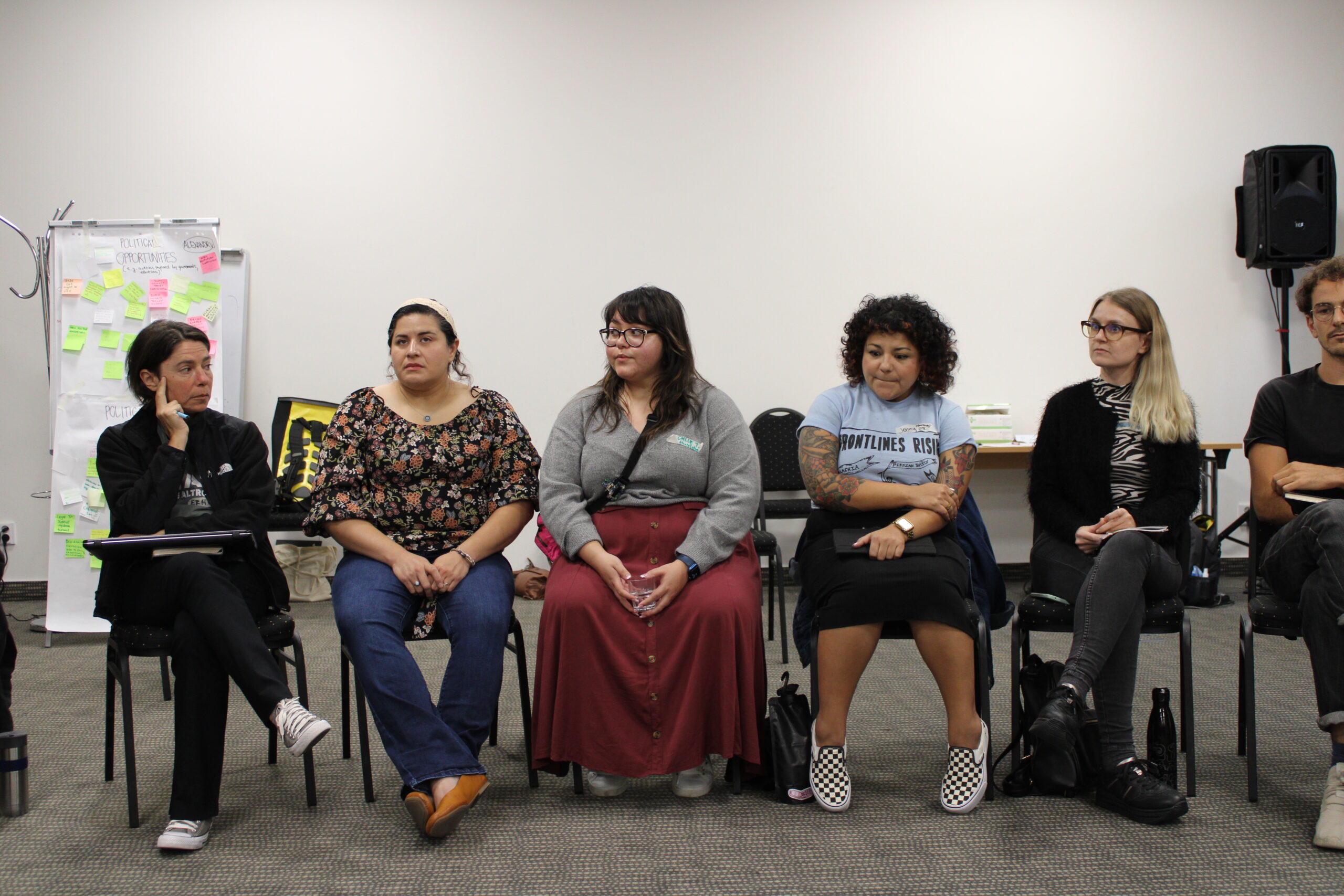
Connecting these testimonies between the continents and therefore the fight in Europe, Maruska Mileta from Zelena Akcija (Friends of the Earth Croatia), shared the struggle surrounding the Krk anti LNG campaign in Croatia.
Ermioni Frezouli from Gastivists Greece, representing the region together with Ya’ara Peretz and Myrto Skouroupathi, shared how experiences with the EastMed pipeline project highlights geopolitical tensions and conflicts, especially in regions like Cyprus and Greece andPalestine/Israel.
Efforts to raise awareness and oppose these projects face challenges, including a lack of climate movements and cultural protests. Strategies for outreach involve media actions, creative performances, social media campaigns, and direct engagement with communities, with an emphasis on the interconnectedness of environmental and social issues. However, obstacles persist, including difficulties in mobilizing people and the limited impact of health studies in legal proceedings.
These international (U.S.) and regional fights among continents and in peripheral regions of Europe are interconnected through the shared supply chain of fossil gas, emphasizing the need for robust and region-specific climate justice movements.
The Action
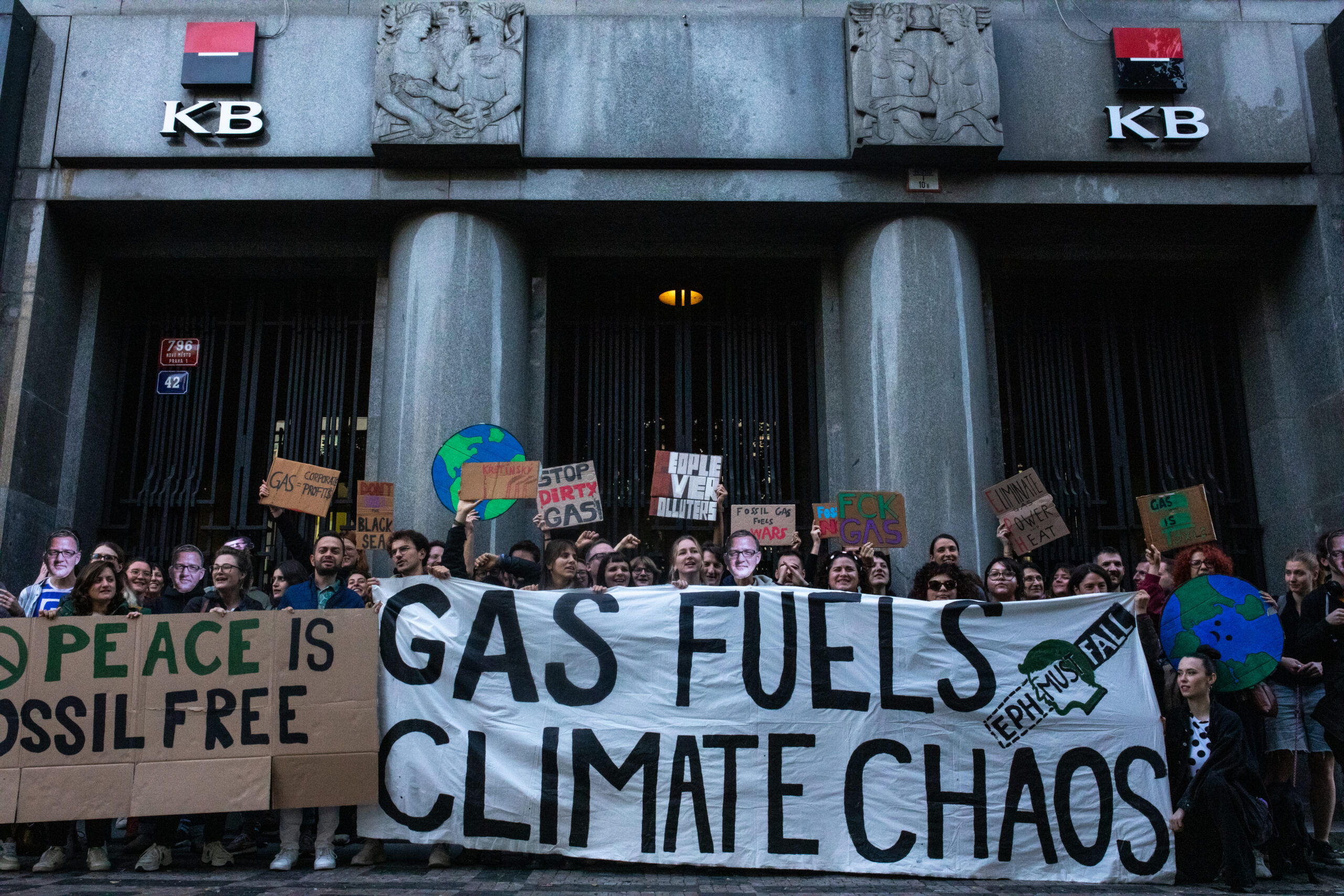 The majority of the participants of the conference, representing up to 19 countries, took part in a protest march in Prague. We targeted the headquarters of Energetický a průmyslový holding (EPH) and Komerční banka. EPH, a major European fossil fuel entity owned by Czech billionaire Daniel Křetínský, ranks among Europe’s top greenhouse gas emitters and is at the forefront of expansive gas infrastructure projects. The action sought to underscore the dire consequences of fossil gas extraction and combustion on the climate while specifically pointing out the role of EPH, with the focus on Komerční banka due to its longstanding financial support for EPH activities.
The majority of the participants of the conference, representing up to 19 countries, took part in a protest march in Prague. We targeted the headquarters of Energetický a průmyslový holding (EPH) and Komerční banka. EPH, a major European fossil fuel entity owned by Czech billionaire Daniel Křetínský, ranks among Europe’s top greenhouse gas emitters and is at the forefront of expansive gas infrastructure projects. The action sought to underscore the dire consequences of fossil gas extraction and combustion on the climate while specifically pointing out the role of EPH, with the focus on Komerční banka due to its longstanding financial support for EPH activities.
 In the words of protest participant Klára Suková from Fridays for Future Czech Republic, “Clean fossil gas is a dirty lie. All fossil fuel extraction must end immediately. The first step is to end lending to fossil fuel companies.”
In the words of protest participant Klára Suková from Fridays for Future Czech Republic, “Clean fossil gas is a dirty lie. All fossil fuel extraction must end immediately. The first step is to end lending to fossil fuel companies.”
Outcomes
The conference session ‘Opportunities ahead & activities within the movement’ held by Collin Roche (Friends of the Earth Europe) and Gligor Radečić (CEE Bankwatch Network), outlined various political opportunities and challenges facing the network. Emphasis was placed on the potential impact of fossil gas-related issues in local and EU elections, the integration of fossil gas into the 2040 climate targets communication, and diplomatic opportunities within the EU – U.S. Energy Council. Challenges included the threat of a shift to the far right post-elections, migration issues, and challenges related to environmental nationalism, colonialism, and Carbon Capture and Storage (CCS).
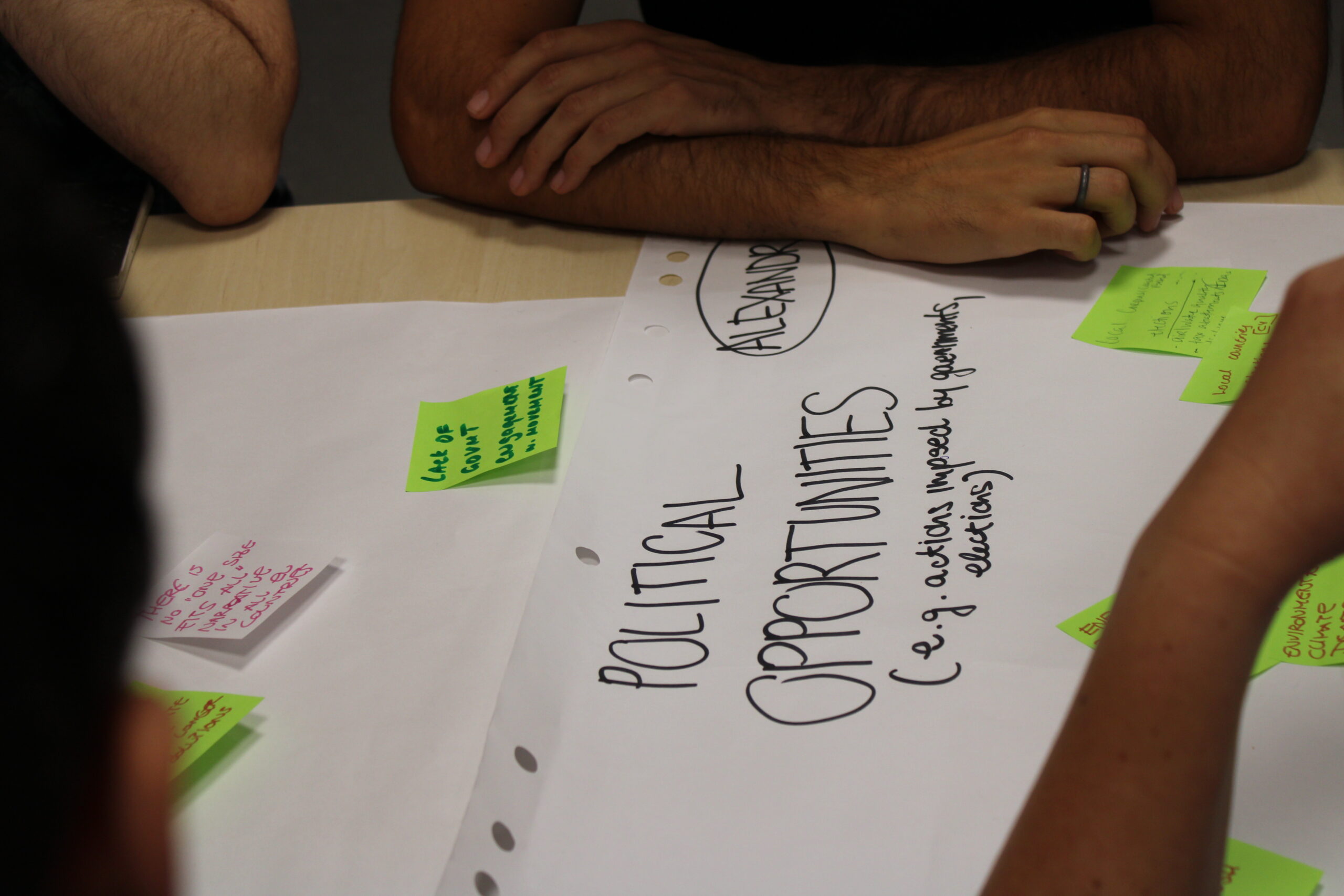
- Social opportunities involved exploring intersections with housing, militarism, and abolition, proposing support mechanisms for people in the green transition, and discussing legal tools and climate litigation. Challenges included NGOs not centering struggles around justice, concerns about the cost of living crisis, fuel poverty, and energy poverty, as well as challenges related to affordability, perceptions of alternatives, and the link between fossil gas and security.
- Economic and financial opportunities included pointing out funds for renewable energy sources (RES) and the potential of the New Multiannual Financial Framework. Challenges encompassed ongoing funding for fossil gas, Hydrogen-ready infrastructure, CCS, private sector interest in funding gas, and issues with windfall taxes.
- Technological opportunities discussed smart grids and efficiency to support electrification, along with unlocking funds from fossil fuels for the energy transition. Challenges included concerns about hydrogen and CCS as false solutions, critical materials imports, technology optimism, and nuclear power/waste.
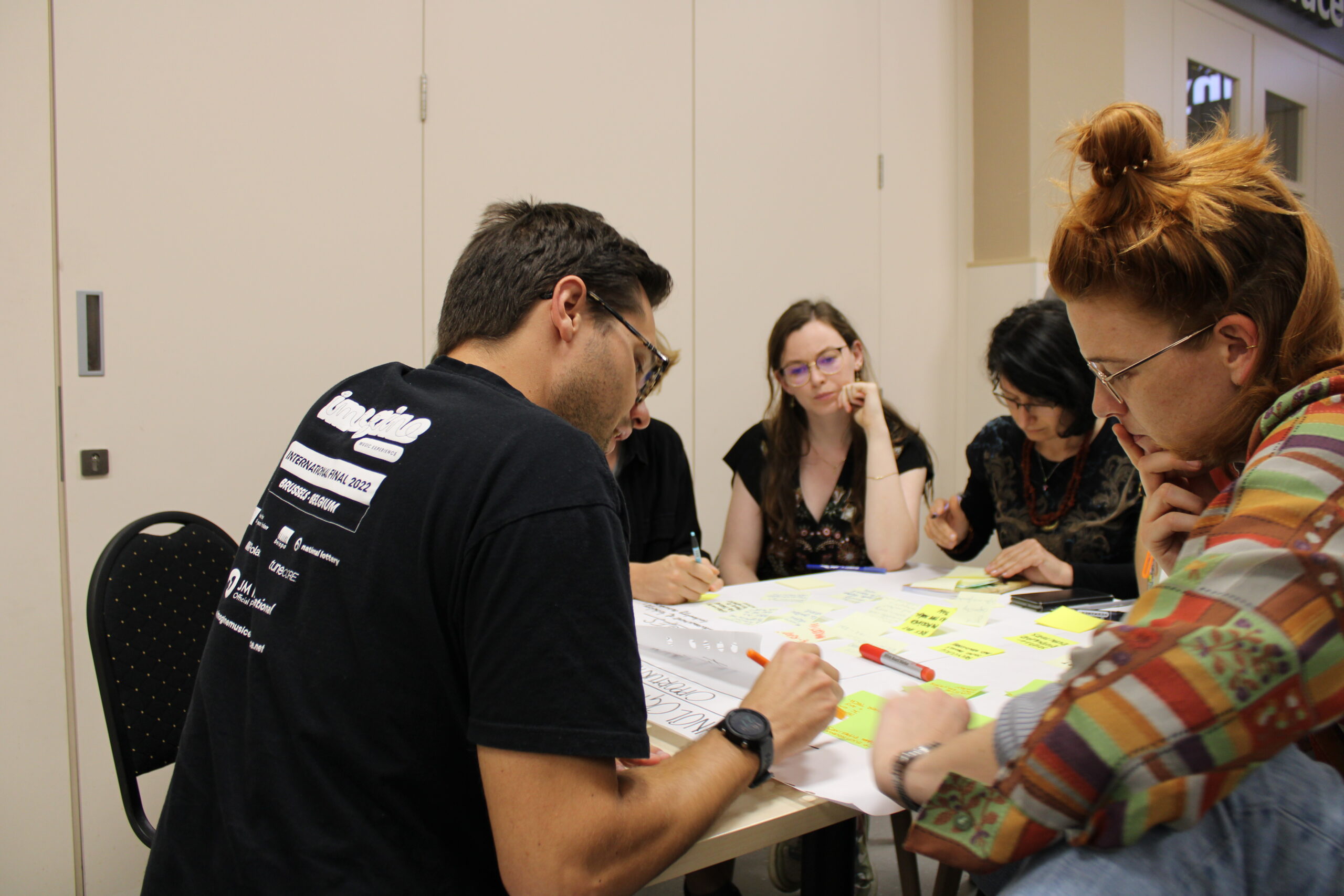
The People over Polluters Skill Share by Pascoe Sabido from Corporate Europe Observatory highlighted insights into the Fossil Free Politics campaign, the People Over Polluters Declaration, and tips on investigating lobbying activities.
Within The Speed Knowledge Bazar, Pippo Taglieri from ReCommon focused on the Mediterranean perspective, discussing strong connections between the Italian multinationals ENI, SNAM, and Mediterranean countries, as well as projects in Spain, Portugal, Greece, and Cyprus related to LNG terminals and pipelines.
Following this, day three – the last day of the conference – emphasized connecting the dots for joint actions, including concrete action points, tactics, and financial considerations. Working groups and social media strategies were identified.
What’s next? As we reflect on the insights shared during this impactful conference, the conference was a resounding call to action and a reaffirmation of our collective commitment to fight gas. We stand united, interconnected, and resilient in our pursuit of environmental and social justice. We forge ahead, continuing to battle, organize, and amplify our voices. Keep fighting, for our planet, for justice and freedom for the oppressed, for a future beyond fossil gas.
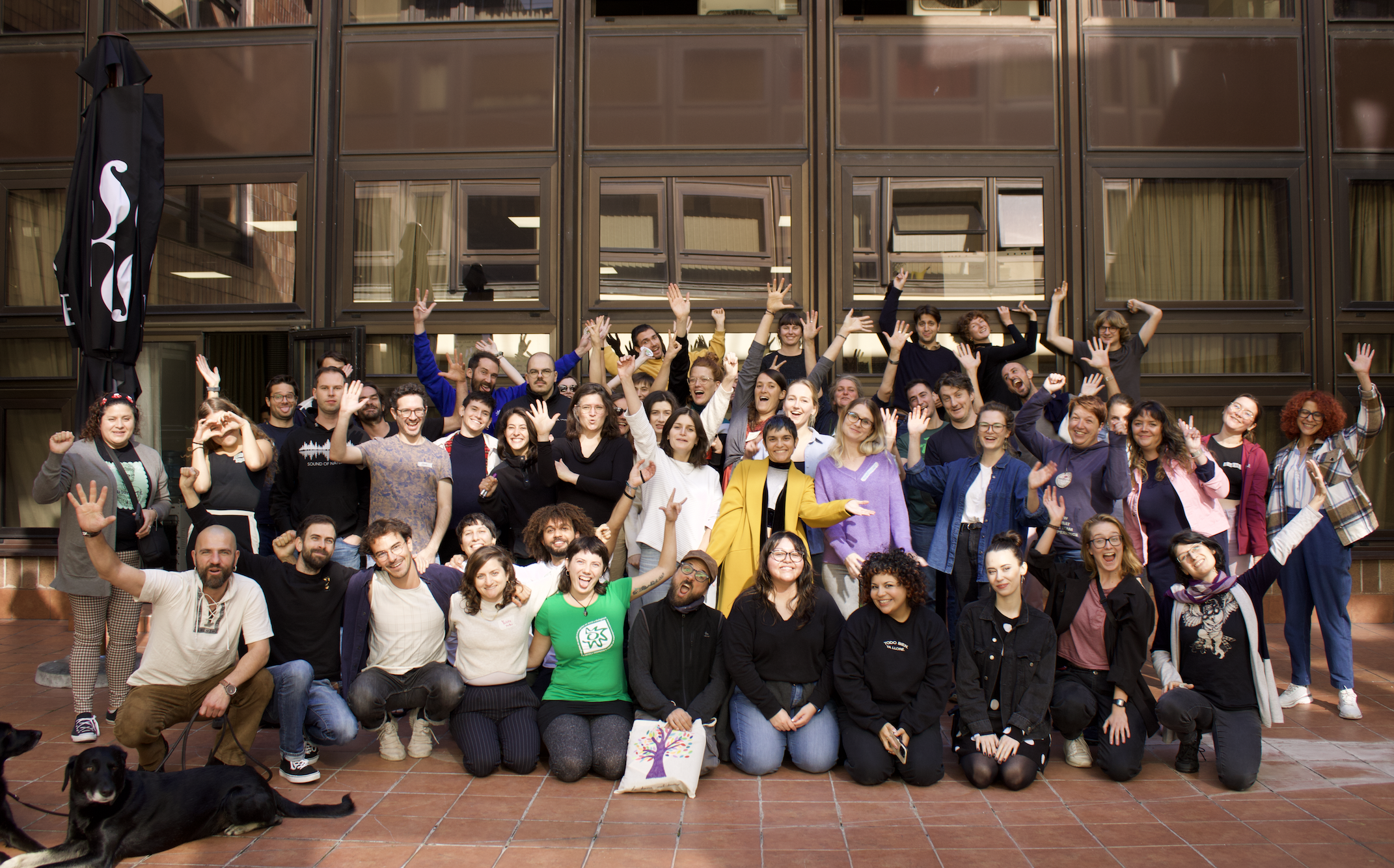
To join the Beyond Gas email list and find out more about the network, contact [email protected]
Other relevant readings:
- Beyond Gas Conference 2019
- Beyond Gas Conference 2021
- Beyond Gas Conference 2023 – blog post





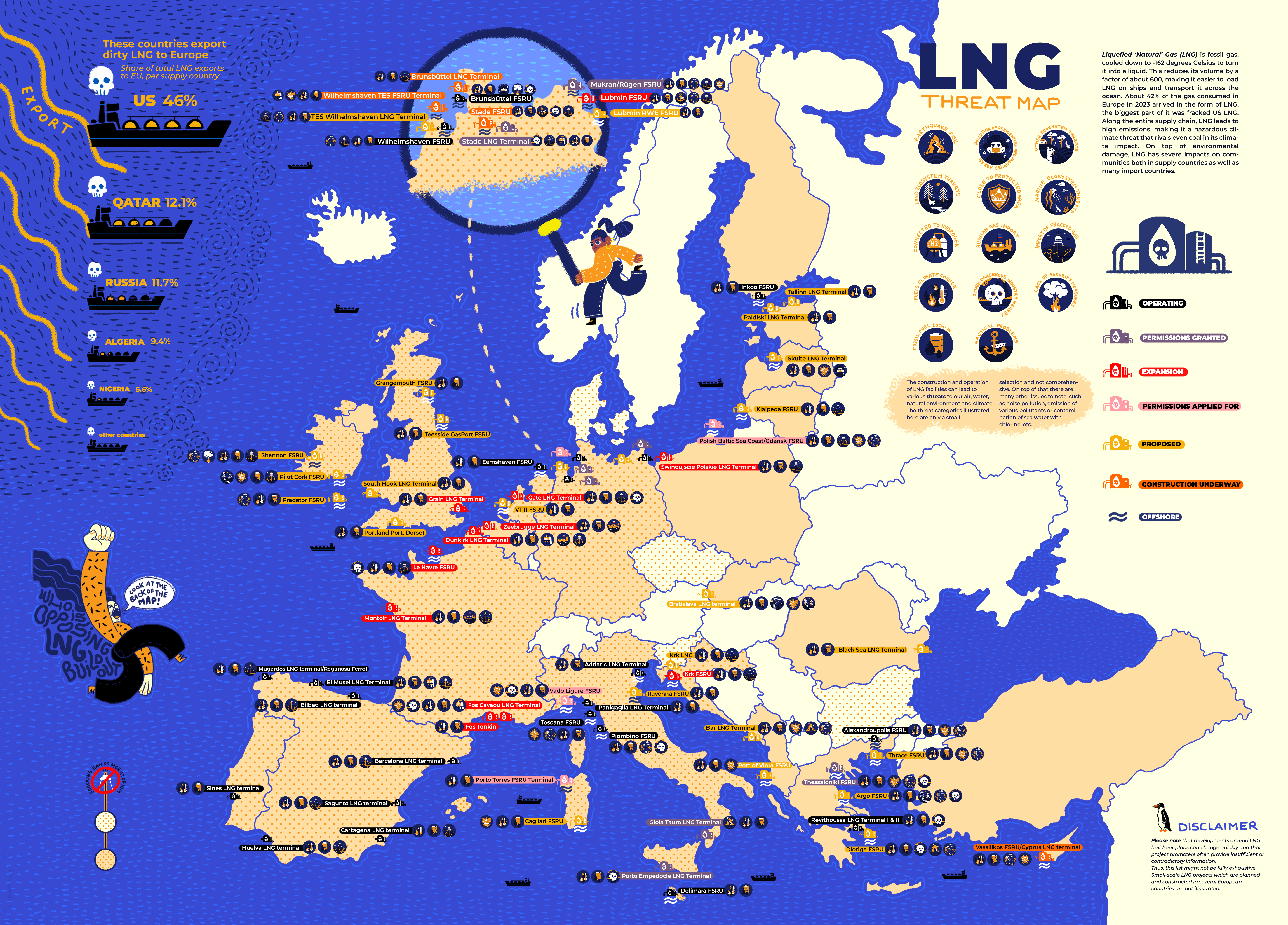
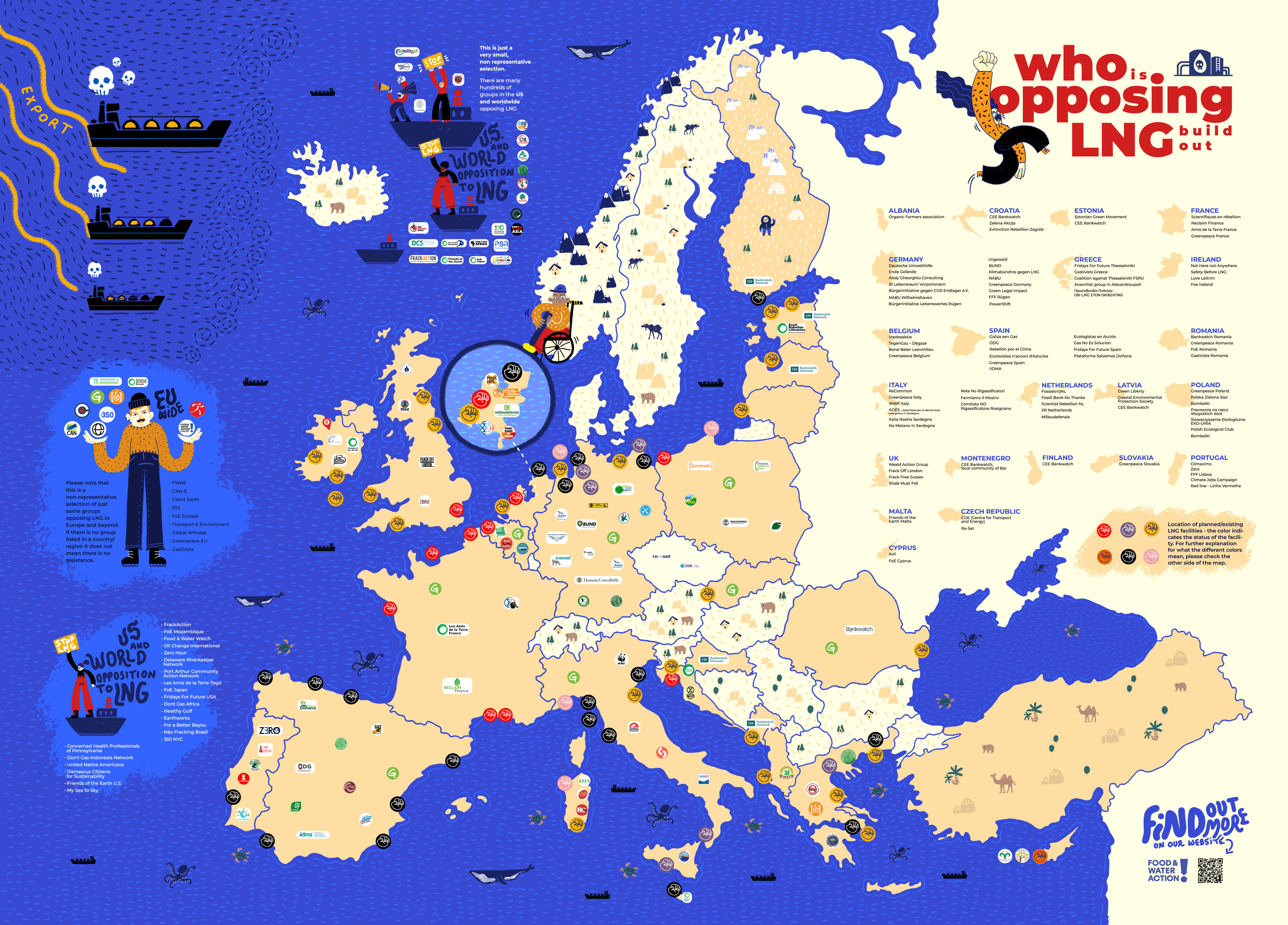
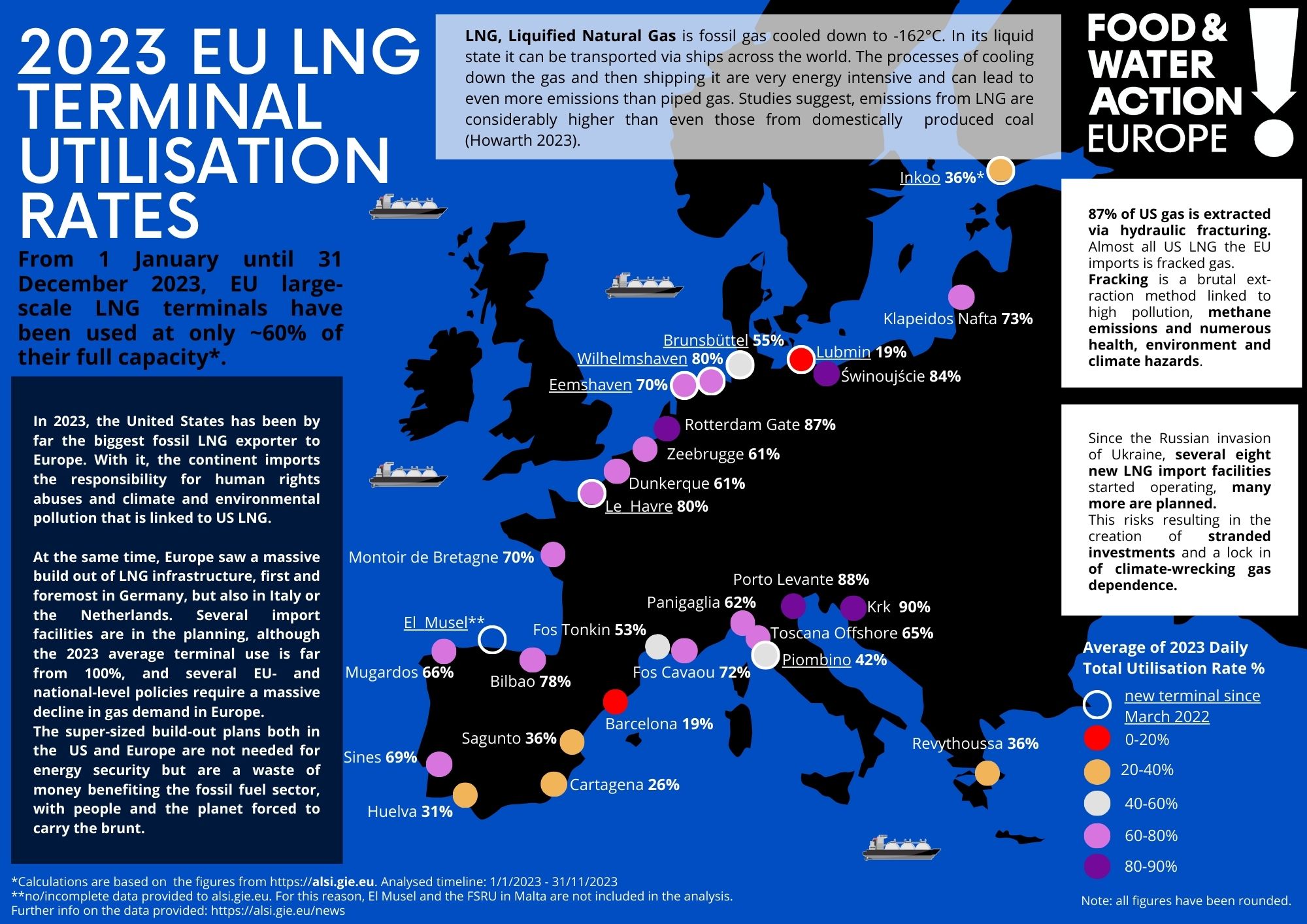
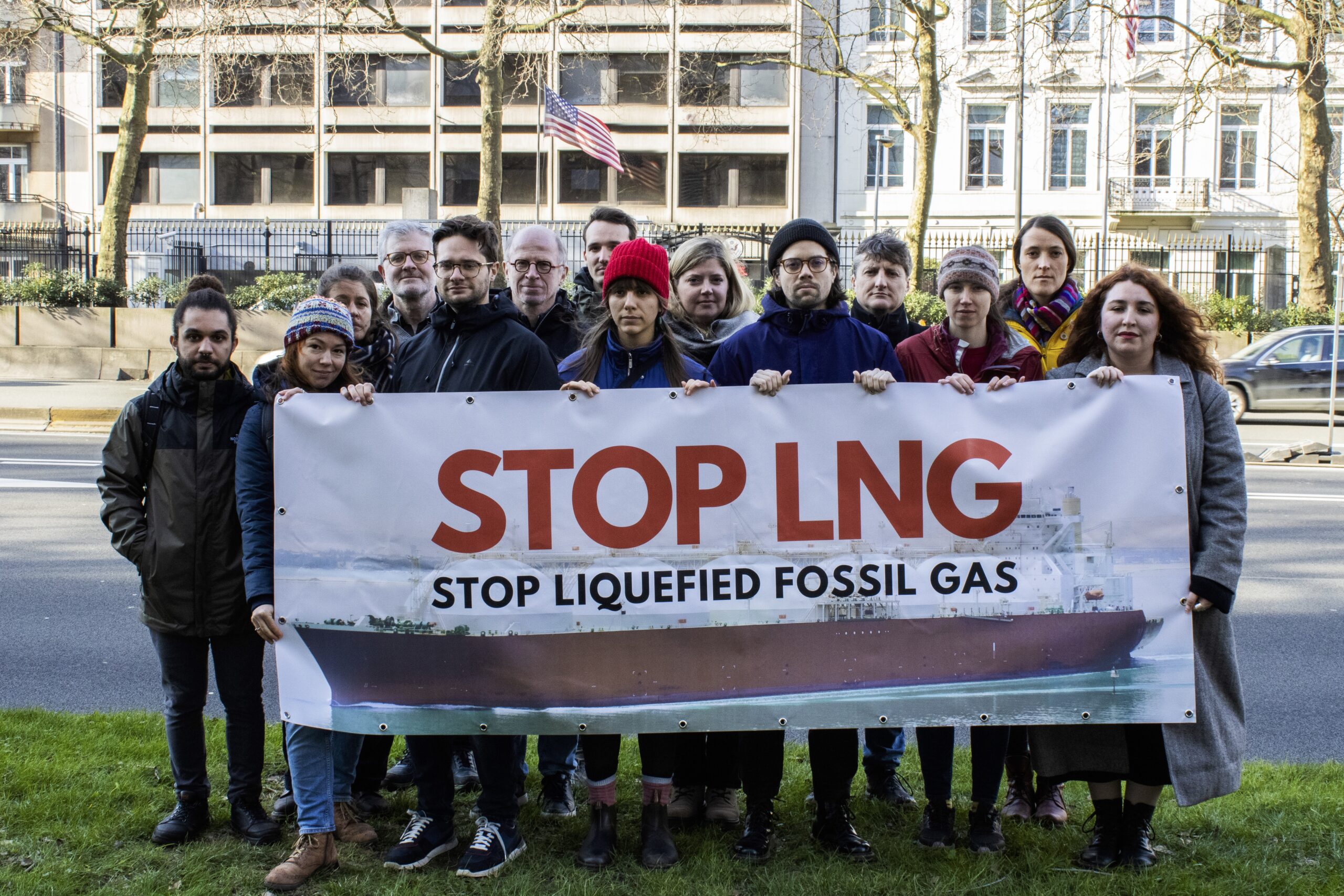

 The EU’s focus on increasing
The EU’s focus on increasing  The Spectrum Lines revealed diverse perspectives within the group, with people from Germany expressing resonance with the EU narrative, people from Greece feeling closer to the Balkans and the Middle East region, and varying opinions on issues like
The Spectrum Lines revealed diverse perspectives within the group, with people from Germany expressing resonance with the EU narrative, people from Greece feeling closer to the Balkans and the Middle East region, and varying opinions on issues like 

 The majority of the participants of the conference, representing up to 19 countries, took part in a
The majority of the participants of the conference, representing up to 19 countries, took part in a  In the words of protest participant
In the words of protest participant 

